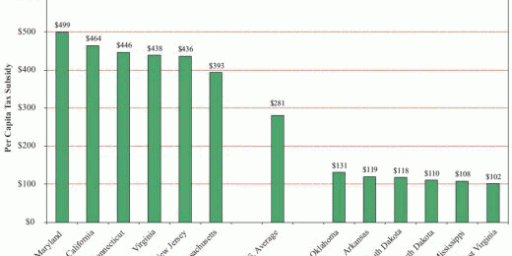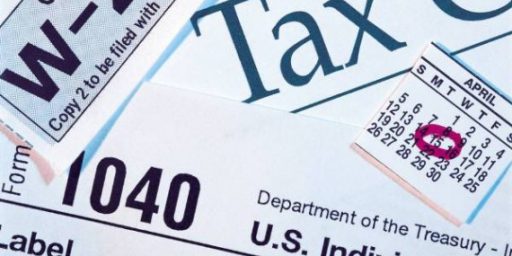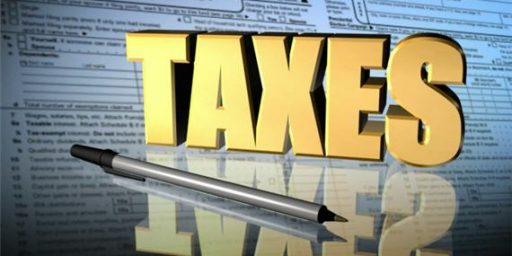Home Mortgage Interest
Matthew Yglesias rebuts a semi-defense of the home mortgage interest deduction I made in his comments section. He notes that renters live in properties owned by someone, so most of the advantages to home ownership I mention still obtain plus,
As with other government efforts to boost savings through giving tax-advantaged treatment to certain savings mechanisms, the main effect is simply to encourage people to under-invest in non-preferred savings vehicles and over-invest in preferred ones. It’s a distorting effect that causes people to build equity in the form of homes rather than either buying a cheaper home or else renting and investing their cash in some other form of asset. The main impact of all of this is just to make homes more expensive than they might otherwise be (this is why HMID will never be eliminated — it would cause all the already-owned homes to lose value), not to boost the national savings rate.
I agree that it’s an inefficient mechanism and would prefer a tax code that was aimed at generating revenue rather than shaping social behavior. I also agree with Matt that the politics are such that the deduction isn’t going to go away, and do think it brings benefits.
For most people, the alternative to home buying is rent, not investment in other assets. When I moved to Northern Virginia, where housing prices are more than triple those of south Alabama, I rented a townhouse because I couldn’t afford the huge down payment and because I didn’t know the area well enough to make an informed buying decision, anyway. That year cost me $18,000 in rent and got me nothing of lasting value in return. Indeed, it put me in the hole, since housing prices went up ten percent or more during the interim and, of course, I was unable to deduct interest, putting me further behind my home owning peers. By contrast, in the six months that I’ve owned my townhouse, I’ve gained roughly $35,000 in paper wealth, in that that’s how much the market value has increased. Furthermore, I will be able to deduct several thousand dollars on my taxes, since virtually my entire mortgage payment is interest at this stage.
Now, granted, even without the deduction, home ownership would be attractive. And, as Matt notes, someone is owning either way. Indeed, the conglomerate that owned my rental townhouse has been disadvantaged by my move. On the other hand, I wouldn’t have been able to afford a home here as quickly without the offset that comes with the interest deduction, which makes my “real” annual outlay for housing essentially what it was when I was renting, even though the monthly transfer is a couple hundred dollars higher. And, as I note, the price would have gone up another $35,000 already.
Another, largely unintended, consequence of the deduction is that it helps even out a very regressive aspect of the “progressive” tax system, namely that it otherwise would not take into consideration vast regional differences in income. An annual salary of $50,000 a year brings substantially different buying power depending on whether the median cost of a home is $500,000 or $50,000, it is taxed the same by the Federal government. Allowing people to deduct home mortgage interest partially rectifies that, since the deduction will be higher in those areas. It also partially alleviates the urban-rural transfer of wealth generated by the tax code and federal spending patterns.






A somewhat tangential point, but is it in fact true that all building owners are given a mortgage interest deduction; or rather, is it true that institutional property owners get mortgage interest deductions (corporations, partnerhsips, etc.)? I’m not a tax lawyer, but I would it seems to me that to assume that an institutional business owner of this type is treated the same as an individual is assuming too much (putting aside the complications of pass-through taxation and the like). Remember, there is a separate tax regime for entities….
To answer the question above – I own a triplex and so have to do both for the same home. I get a home interest deduction for the 1/3 I live in and a business interest deduction for the rest (because I have rental income from the other 2/3, any money I spend in order to earn it counts as a business expense). So Matt’s basically right.
One further justification I would add to your list, James, would be that home ownership promotes social stability. A lot. That alone is more than ample reason for the government to want to promote it.
—